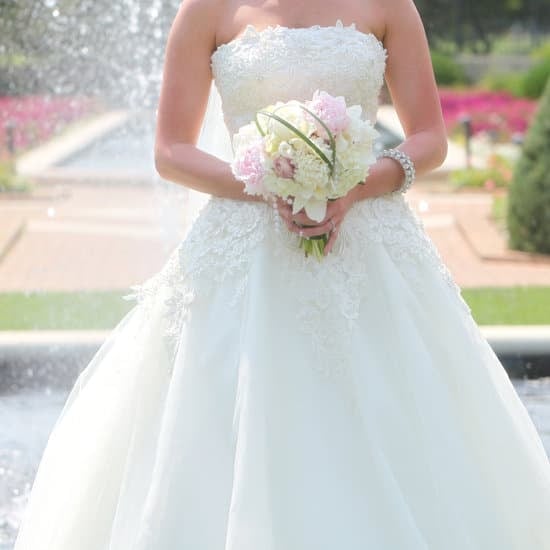Are you interested in learning how to become a wedding officiant? Wedding officiants play a crucial role in a couple’s special day, guiding them through the ceremony and legally binding their union. In this article, we will explore the legal requirements, responsibilities, and opportunities for individuals interested in becoming wedding officiants.
Becoming a wedding officiant can be a fulfilling and meaningful career choice for those who have a passion for bringing couples together and creating beautiful, personalized ceremonies. Whether you are considering this path as a part-time gig or as a full-time profession, there are important factors to consider when pursuing this role.
In the following sections, we will delve into the legal requirements and certifications needed to become a wedding officiant, as well as the duties and responsibilities that come with the role. We will also discuss how to obtain the necessary credentials and training, along with tips for creating personalized and memorable ceremonies.
Additionally, we will explore strategies for marketing yourself as an officiant and building your brand within the industry. If you have ever considered pursuing a career as a wedding officiant, read on to discover more about this rewarding profession.
Legal Requirements and Certifications for Becoming a Wedding Officiant
Becoming a wedding officiant is a fulfilling and meaningful way to be involved in one of the most important moments in a couple’s life. To become a wedding officiant, there are legal requirements and certifications that need to be fulfilled. Each state has its own specific rules and regulations regarding who can legally perform a marriage ceremony, so it’s important to research the laws in your particular area.
In most states, becoming a wedding officiant requires obtaining a legal credential or certification. This can often be done through religious organizations, such as churches or religious societies, as well as through online ministries that offer ordination. It’s important to note that some states have additional requirements, such as registration with local government offices or passing an exam.
For example, in California, individuals can become ordained through online ministries like the Universal Life Church or American Marriage Ministries. Once ordained, they must register with the County Clerk’s office before performing any ceremonies. On the other hand, in New York City, individuals must obtain a Certificate of Authority from the New York City Clerk’s Office and provide proof of ordination before being able to legally officiate weddings.
Ultimately, understanding the legal requirements and certifications for becoming a wedding officiant is crucial to ensure that you are authorized and prepared to conduct marriage ceremonies within your jurisdiction.
| Legal Requirements | Certifications |
|---|---|
| Varies by state | Ordination through religious organizations or online ministries |
| Registration with local government offices may be necessary | Additional requirements such as passing an exam may apply |
Understanding the Duties and Responsibilities of a Wedding Officiant
As a wedding officiant, it is essential to understand the duties and responsibilities that come with the role. From creating a personalized ceremony to handling legal obligations, the role of a wedding officiant requires attention to detail and genuine care for the couples they serve.
Here are some key duties and responsibilities of a wedding officiant:
- Ceremony Creation: One of the most important responsibilities of a wedding officiant is to create a personalized and meaningful ceremony for the couple. This involves working closely with the couple to understand their love story, beliefs, and values, and incorporating these elements into the ceremony.
- Legal Obligations: In addition to creating a beautiful ceremony, wedding officiants are responsible for ensuring that all legal requirements are met. This includes obtaining marriage licenses, filing necessary paperwork, and adhering to state or local regulations regarding officiating weddings.
- Communication and Collaboration: Wedding officiants must also communicate effectively with the couple and any other vendors involved in the wedding. This may involve coordinating with event planners, photographers, and musicians to ensure that the ceremony runs smoothly.
In order to become a successful wedding officiant, it is crucial to understand these duties and responsibilities thoroughly. With proper training and dedication, you can provide couples with an unforgettable wedding experience that they will cherish for years to come.
How to Obtain the Necessary Credentials and Training
Becoming a wedding officiant is an exciting and fulfilling career choice for those who have a passion for joining couples in marriage. In order to become a wedding officiant, it is important to obtain the necessary credentials and training. There are varying legal requirements and certifications depending on the location where you plan to officiate weddings, so it is crucial to understand the specific requirements in your area.
The first step in becoming a wedding officiant is researching the legal requirements for performing marriages in your state or country. Some areas may require ordination through a religious institution, while others may offer a designated officiant certification process. It is important to thoroughly research and understand the legalities surrounding officiating weddings in your desired location.
Once you have identified the necessary credentials for becoming a wedding officiant, the next step is obtaining any required training or certifications. This could involve completing an online course, attending seminars or workshops, or seeking mentorship from experienced wedding officiants. Additionally, gaining knowledge about different cultural and religious marriage traditions can also be valuable in serving diverse couples.
In addition to securing the required credentials and training, it is also important to gain practical experience by shadowing established wedding officiants or volunteer to perform ceremonies for friends and family members. By taking these proactive steps, you can ensure that you are well-prepared and equipped with the skills needed to confidently and professionally officiate weddings.
Tips for Creating a Personalized and Meaningful Wedding Ceremony
Creating a personalized and meaningful wedding ceremony is crucial for a wedding officiant in order to provide a memorable experience for the couple and their guests. Here are some tips to help you craft a ceremony that truly reflects the couple’s unique love story and values.
Get to Know the Couple
Before you start planning the ceremony, take the time to get to know the couple on a personal level. Ask them about how they met, what makes their relationship special, and what they envision for their wedding ceremony. Understanding their story and preferences will help you tailor the ceremony to their specific needs and desires.
Customize Vows and Readings
Work with the couple to customize their vows and select meaningful readings or poems that resonate with them. Encourage them to write their own vows or provide input on traditional vows that hold significance for them. Incorporating personal touches into the ceremony will make it feel more intimate and authentic.
Incorporate Unique Rituals
Consider incorporating unique rituals or cultural traditions that are meaningful to the couple. This could include a unity candle lighting, handfasting ceremony, or any other ritual that holds significance for them. Discuss with the couple about any special elements they would like included in their ceremony.
By following these tips, you can create a personalized and meaningful wedding ceremony that celebrates the love and uniqueness of each couple. As a wedding officiant, your ability to create an unforgettable experience for couples is what sets you apart in this fulfilling profession.
Marketing Yourself as a Wedding Officiant and Building Your Brand
So, you’ve obtained the necessary credentials and training to become a wedding officiant – what’s next? Now it’s time to focus on marketing yourself as a wedding officiant and building your brand. This is an important step in establishing yourself as a successful and sought-after officiant in your community.
Creating a Professional Image
One of the first steps in marketing yourself as a wedding officiant is to create a professional image. This includes having a well-designed website that showcases your services, testimonials from satisfied couples, and any relevant certifications or training you have obtained. You’ll also want to make sure your social media profiles are professional and reflect your personality while maintaining a level of decorum.
Networking With Wedding Vendors
Building relationships with local wedding vendors such as photographers, florists, and venues can be invaluable in growing your business. When you establish good working relationships with other vendors, they are more likely to refer couples to you when they are in need of an officiant. Attending industry events and joining local business organizations can help you connect with these vendors and build mutually beneficial partnerships.
Utilizing Online Marketing Tools
In today’s digital age, online marketing is essential for reaching potential clients. Utilize tools such as social media advertising, search engine optimization (SEO) for your website, and email marketing to reach engaged couples. Creating engaging content such as blog posts or videos about wedding ceremonies can also help showcase your expertise and attract couples who are seeking a personalized and meaningful ceremony.
Handling the Legal and Administrative Aspects of Officiating Weddings
When becoming a wedding officiant, it is essential to understand the legal and administrative aspects of officiating weddings. This includes obtaining the necessary licenses and certifications required by your state or country. The specific requirements can vary depending on where you are located, so it is crucial to research and understand the legal obligations in your area.
In the United States, for example, some states require officiants to register with a government office or religious organization, while others have no specific registration process. Additionally, certain states may have residency or age requirements for wedding officiants. Understanding these legal considerations is key in order to perform weddings legally and avoid any potential issues.
Furthermore, handling the administrative side of officiating weddings involves ensuring that all necessary paperwork is completed accurately and submitted on time. This includes obtaining marriage licenses, drafting wedding certificates, and adhering to any other official documentation requirements. Being organized and detail-oriented in these matters is vital for a successful career as a wedding officiant.
In addition to understanding the legal and administrative aspects of officiating weddings, it is important for wedding officiants to be knowledgeable about marriage laws and regulations in general. This includes being aware of any restrictions or special circumstances that may apply to different couples, such as interfaith marriages or same-sex unions. By staying informed about relevant legal considerations, wedding officiants can better serve their clients and ensure that ceremonies are conducted in compliance with all applicable laws.
| Legal Requirements | Administrative Duties |
|---|---|
| Understanding state-specific requirements | Ensuring accurate paperwork completion |
| Obtaining necessary licenses/certifications | Submitting paperwork on time |
| Staying informed about marriage laws | Drafting wedding certificates |
Building and Maintaining Relationships With Couples and Wedding Vendors
As a wedding officiant, building and maintaining relationships with couples and wedding vendors is an essential part of your role. Not only does it contribute to the success of the wedding ceremony, but it also helps you establish a strong reputation in the industry. Here are some tips on how to effectively build and maintain these important relationships:
- Communicate clearly and effectively: It’s crucial to maintain open lines of communication with both couples and vendors. Be responsive to their emails, calls, and inquiries, and make sure that all details are clearly discussed and agreed upon.
- Be professional and reliable: Show up on time for meetings and ceremonies, dress appropriately, and conduct yourself in a professional manner. Your professionalism will not only impress the couples but also earn the respect of wedding vendors.
- Networking: Attend industry events, bridal fairs, and networking opportunities where you can meet both couples looking for officiants and vendors looking to collaborate. Building a strong network within the wedding industry can lead to valuable partnerships.
In addition to building relationships with couples and vendors, it’s important to maintain those connections over time. Keeping in touch with past couples can lead to referrals and testimonials that can enhance your reputation as a wedding officiant. Similarly, maintaining good relationships with vendors could lead to future collaborations on weddings or other events.
Ultimately, being personable, reliable, and professional is key to building and maintaining successful relationships with both couples and wedding vendors as a wedding officiant. These connections not only contribute to the success of individual ceremonies but also play a crucial role in establishing your brand within the industry.
Managing the Emotional and Logistical Aspects of Officiating Weddings
As a wedding officiant, one of the most important aspects of your role is managing the emotional and logistical aspects of officiating weddings. This includes not only overseeing the ceremony itself, but also providing support and guidance to the couple throughout the entire process. From helping them navigate their emotions to ensuring that everything runs smoothly on the big day, there are several key considerations to keep in mind.
First and foremost, it’s essential to be empathetic and understanding when working with couples. Many couples experience a range of emotions during the wedding planning process, from excitement to stress and everything in between. As an officiant, part of your responsibility is to offer a calming presence and supportive ear for the couple as they navigate these emotions. This may involve providing reassurance, offering advice, or simply listening as they express their concerns.
In addition to managing the emotional aspect of officiating weddings, there are also several logistical considerations to address. This includes coordinating with other vendors, ensuring that all necessary paperwork is in order, and overseeing the flow of the ceremony itself.
Attention to detail and strong organizational skills are key in successfully managing these logistical aspects. Additionally, effective communication with other vendors and members of the wedding party is essential for ensuring that everything goes according to plan on the big day.
Overall, managing both the emotional and logistical aspects of officiating weddings requires a delicate balance of empathy, organizational skills, and clear communication. By providing support and guidance to couples while also overseeing the practical details of the ceremony, you can help ensure that their special day is as seamless and meaningful as possible.
Conclusion
Becoming a wedding officiant can be a truly fulfilling and rewarding career path for those who are passionate about love, commitment, and creating meaningful ceremonies. It is a role that allows individuals to be an integral part of one of the most important days in a couple’s life, and to help create memories that will last a lifetime.
Not only does it provide an opportunity to bring joy to others, but it also allows for personal growth and the chance to make a positive impact on the world.
For those interested in becoming a wedding officiant, it is important to understand the legal requirements and certifications necessary. This may include obtaining ordination through religious or non-religious organizations, as well as abiding by local laws and regulations for officiating weddings. Additionally, gaining a thorough understanding of the duties and responsibilities of a wedding officiant is essential in order to provide couples with the best possible experience on their special day.
Obtaining the necessary credentials and training is crucial for success as a wedding officiant. This may involve completing courses or workshops on ceremony design, public speaking, and marriage laws. By investing time and effort into developing these skills, aspiring wedding officiants can ensure that they are well-prepared to create personalized and meaningful ceremonies that reflect the unique love story of each couple. So if you are considering how to become wedding officiant do consider all aforementioned factors.
Frequently Asked Questions
Can Anyone Officiate a Wedding in New Jersey?
In New Jersey, not just anyone can officiate a wedding. The individual must be a legally ordained minister, rabbi, priest, or other religious leader. Alternatively, they can also be a judge or mayor of a town in New Jersey.
What Is Required to Officiate a Wedding in Nevada?
To officiate a wedding in Nevada, the individual must be at least 18 years old and possess a valid minister’s license or ordination certificate from an established church or religious organization. They must also register with the county clerk before performing the ceremony.
Can Anyone Officiate a Wedding in New York?
In New York, the rules for who can officiate a wedding are strict. The individual must be authorized by a city or town clerk to perform marriages and must belong to a religious denomination for this authorization. Non-denominational officiants may also apply by submitting an application with additional requirements.

I have been involved in marriages for over 20 years helping couples and singles understand more about them.





